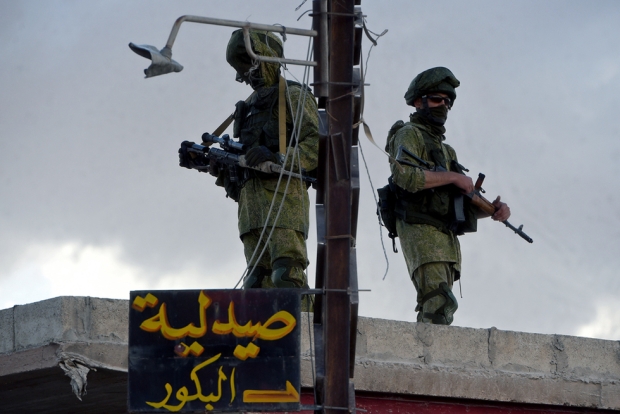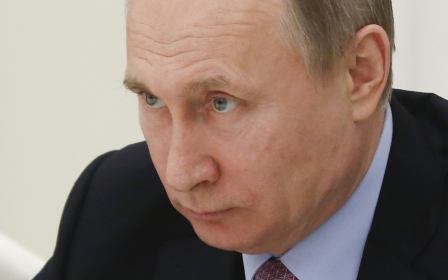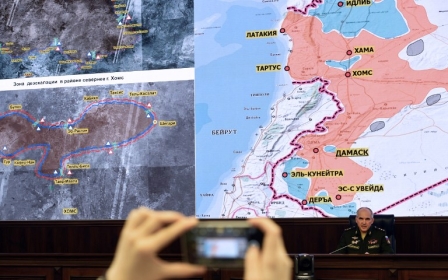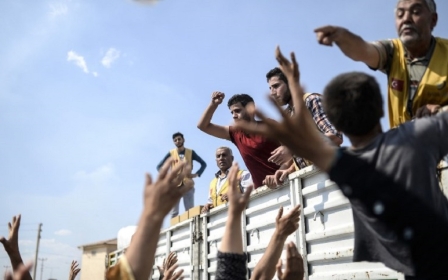Syria rejects 'any UN role' in Russian de-escalation plan
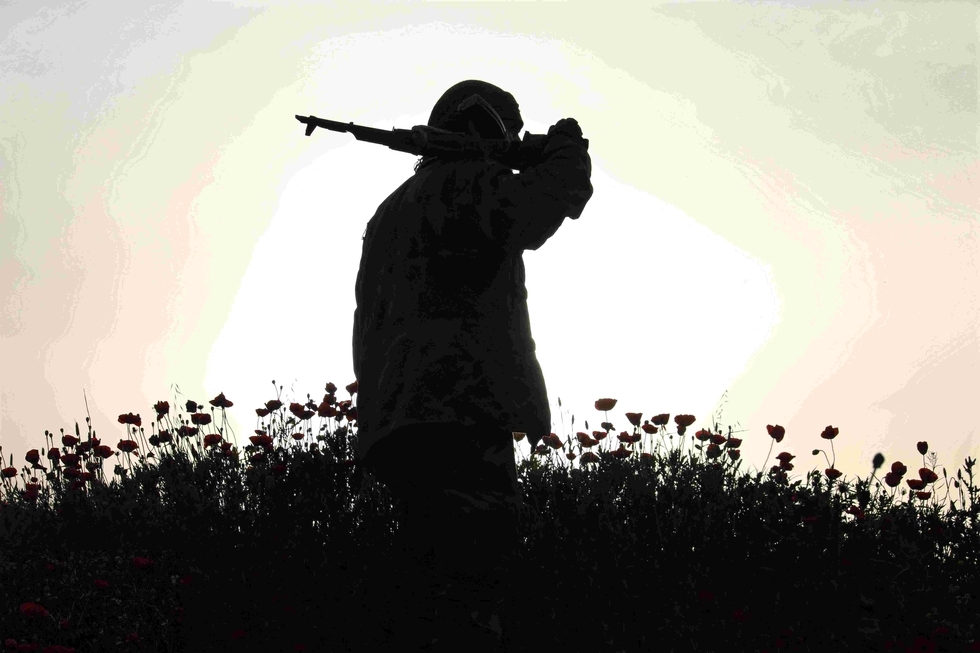
Syria's foreign minister on Monday said his country would reject any United Nations role in monitoring the implementation of four "de-escalation" zones aimed at creating a ceasefire across Syria.
"We do not accept a role for the United Nations or international forces to monitor the agreement," Walid Muallem said at a news conference in Damascus.
His rejection comes after Russia, Iran and Turkey, who agreed to act as "guarantors" of the ceasefire, reached a deal on Thursday to create "de-escalation zones" across Syria in a bid to halt hostilities between government and opposition forces.
The deal says those areas would be bordered by "security zones" with checkpoints and observation centres "ensured by the forces of the guarantors by consensus", but that "third-party" monitors could also be deployed.
It also halts aerial assaults by the Syrian government which have used warplanes to bomb hospitals and schools during the six-year-long civil war.
The agreement reached in Astana hinted at the possibility of Russia, Iran and Turkey jointly deploying its forces to ensure the "de-escalation zones" hold across the whole of Syria for six months.
Muallem on Monday said there could be a role "as the Russian guarantor has said, for military police", but it was unclear if he was referring to Syrian or foreign units.
Russia meanwhile said it had tabled a draft resolution at the United Nations Security Council to back up its plan.
"We confirm that a draft resolution has been introduced," UN mission spokesman Fyodor Strzhizhovsky said, but gave no further details.
Muallem said rebels involved in the process must help to clear areas they control of hardline militant groups, including the group formerly known as the Nusra Front which operates in the "de-escalation zones".
Last week, Hamish de Bretton-Gordon, a former chemical weapons expert for the British army and founder of Doctors Under Fire, told Middle East Eye that it was imperative that there were troops on the ground to enforce the deal, ideally under a UN mandate
There has been, he said, "a strong acknowledgement from Putin that the US and UN have a role to play, and that's what I hope to see next, as without them I don't see much progression".
During Monday's news conference, Muallem also said the Syrian Kurds' battle against Islamic State was "legitimate" and fell in the framework of preserving Syrian unity.
His comments came a day after Kurdish leaders said they planned to occupy Raqqa, the IS stronghold in Syria, and suggested Idlib could also be a future target as the Kurds sought to create a ferderal area in the north.
Fighting subsides
Monitoring groups confirmed that fighting had "sharply reduced" following the signing of the agreement in Astana.
The Syrian Observatory for Human Rights on Saturday said there had been a reduction in fighting across Syria since the deal came into force, but warned it was too early to say whether it would last.
Political and armed opposition groups have rejected the proposal, saying Russia has been unwilling or unable to get Assad and his Iranian-backed militia allies to respect past ceasefires.
The multi-phase plan, signed Thursday in the Kazakh capital of Astana, is one of the more ambitious efforts aimed at ending Syria's six-year conflict.
It provides for a ceasefire, rapid deliveries of humanitarian aid and the return of refugees after "de-escalation zones" are created across stretches of eight Syrian provinces.
More than 320,000 people have been killed since Syria's conflict erupted in March 2011.
New MEE newsletter: Jerusalem Dispatch
Sign up to get the latest insights and analysis on Israel-Palestine, alongside Turkey Unpacked and other MEE newsletters
Middle East Eye delivers independent and unrivalled coverage and analysis of the Middle East, North Africa and beyond. To learn more about republishing this content and the associated fees, please fill out this form. More about MEE can be found here.


